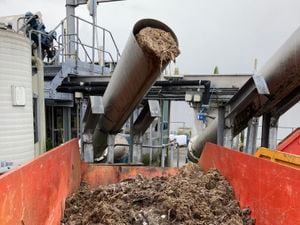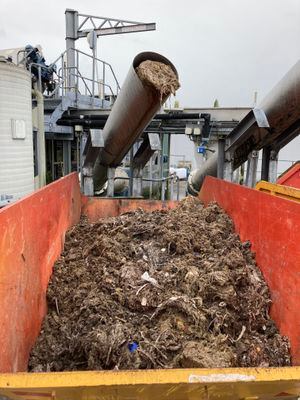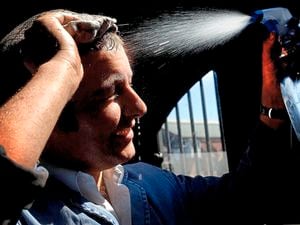Grim photo shows some of the ‘unflushable’ items that end up in region's sewer treatments
Severn Trent has been urging people to think before they flush as it showcases the amount of ‘unflushable’ items that end up in sewer treatments.

Every week, around two and a half tons of wipes and other items which should not be flushed are pulled out of our sewers, the water company says – the same weight as a Range Rover.
If the items manage to reach the sewage treatment works without causing a blockage in the network, they are removed through a screening process.
Grant Mitchell, from Severn Trent, said: “Unflushables such as wet wipes cause huge problems on our network – they don’t break up and dissolve the same way toilet paper does.
“They can attach to other items which are incorrectly flushed down the toilet, such as sanitary products and nappies, as well as fats, oils and greases that have incorrectly been poured down the drain, and quickly cause a blockage.” Mr Mitchell added: “These full skips are the result of everyone flushing just one wipe here and there, and not realising the impact that it’s having.
“Our advice is to stick to flushing the three P’s (pee, poo and toilet paper) and bin anything else.
“These relatively small changes will make a big difference and hopefully avoid any future blockages from happening.”

The average home sewer pipe is 150mm in diameter – the same as a new roll of toilet paper, so it does not take much for a blockage to form and cause sewage back up into people’s homes, the street or the local environment.
“Many customers may not realise that they are responsible for the waste pipe running away from their home up until it either crosses the property boundary or meets with another waste pipe or sewer,” Grant added.
“It doesn’t take much to cause a blockage and unblocking or repairing this section of pipe can prove to be costly.
“But it’s completely avoidable if you’re careful about what you put down your toilet and bin any unflushables.”





